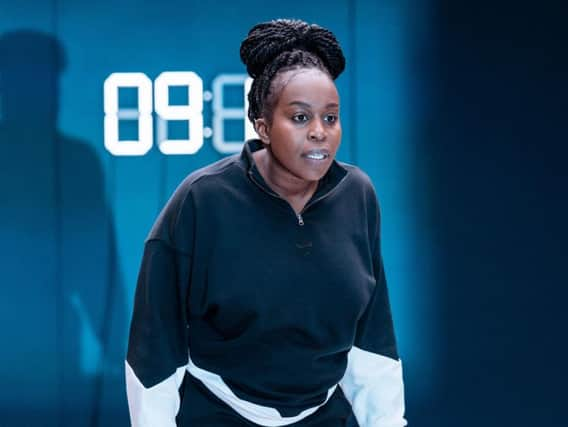REVIEW: random/generations, Minerva Theatre, Chichester, until June 2.


random is a play which understands it completely – beautifully written and mesmerisingly delivered by Petra Letang in an extraordinary solo performance. It’s difficult to believe we will see anything more compelling than this all season – or more poignant.
It starts so humorously as Letang – mostly the sister but also the other members of her family – wakes up on the day something horrifying is going to happen, and the contrast couldn’t be sharper when the knock on the door comes.
Advertisement
Hide AdAdvertisement
Hide AdOn the barest of stages, Letang creates, though words alone, the most vivid of pictures – a perfectly normal family, miscommunicating as normal families to, blissfully unaware of the tragedy that will soon shatter everything.
debbie tucker green (and you can almost forgive her insistence on lower case) has got the surest of instincts for the tiniest of details – the details which make it all seem so heart-breakingly real. It’s a play which brings home to us the kind of news we are waking up to seemingly every morning at the moment; random takes us into the appalling consequences behind the knife-crime headlines.
The evening opens with generations, an odd mix of Groundhog Day and And Then There Were None, a fine idea which never seems fully realised. Repetition stripped of all context doesn’t necessarily add up to the poetry the playwright is clearly hoping for. There are fine performances, but it doesn’t convince from the start. The final impression is that maybe there might be something there after all.
But everything is soon completely eclipsed by random, where the poetry of death and grief becomes almost tangible – thanks to Tinuke Craig’s fine direction and a simply outstanding performance from Letang. At the end, as you ponder what she’s put herself through, you wonder how on earth she can possibly do it again… and again and again. This is theatre at its most riveting.